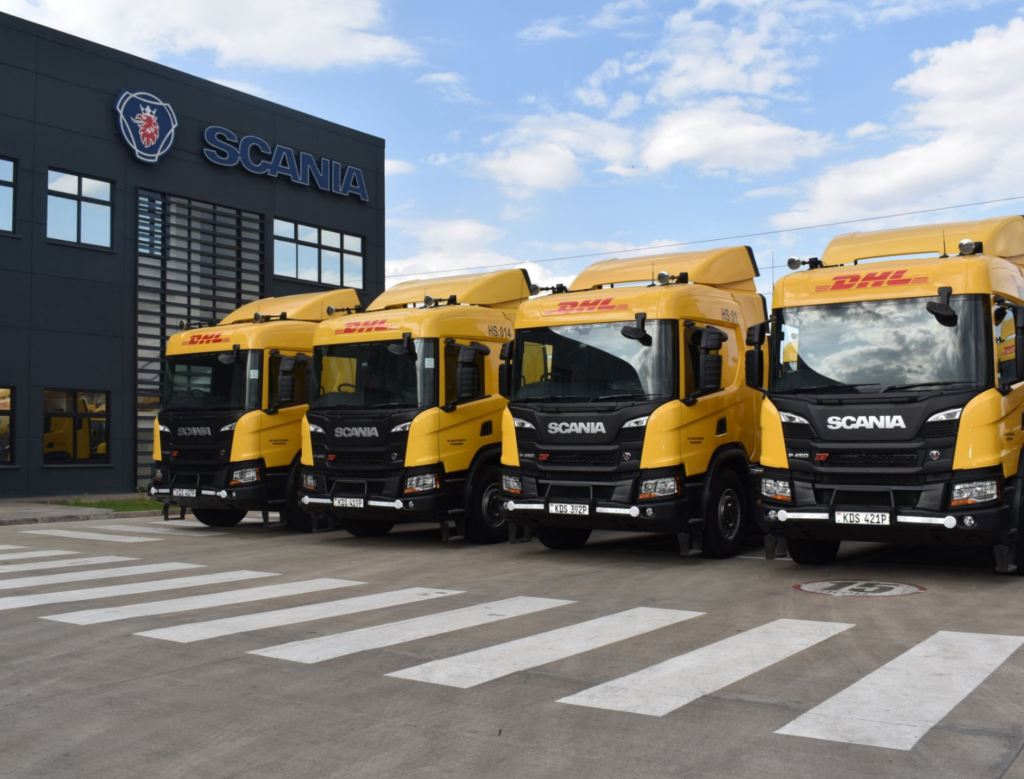
DHL, a global leader in logistics, has joined forces with Scania, a renowned manufacturer of heavy-duty vehicles, to revolutionize logistics in East Africa. This partnership aims to enhance the efficiency, sustainability, and reliability of logistics services across the region. The collaboration between DHL and Scania is centered on addressing key challenges in East African logistics, including inadequate infrastructure, rising fuel costs, and environmental concerns. By leveraging Scania’s innovative vehicle technology and DHL’s extensive logistics network, the partnership seeks to enhance supply chain efficiency through advanced vehicle solutions, promote sustainability by incorporating eco-friendly trucks into operations, and boost economic growth by improving the movement of goods across borders.
Scania will provide state-of-the-art trucks equipped with fuel-efficient engines and reduced carbon emissions. These vehicles align with DHL’s goal of achieving net-zero carbon emissions by 2050. The initiative will focus on improving logistics infrastructure to connect rural areas to major trade hubs, facilitating faster and more reliable delivery services. DHL and Scania are investing in training programs for drivers, emphasizing safe and sustainable driving practices. This will ensure better vehicle management and enhanced road safety across East Africa.
The partnership will integrate modern technology, such as fleet management systems and GPS tracking, to monitor vehicles in real-time and optimize delivery routes. This collaboration is expected to significantly contribute to East Africa’s economic growth. By improving the logistics sector, small and medium enterprises (SMEs) will gain better access to global markets, boosting trade and employment opportunities. Additionally, the use of sustainable logistics solutions will reduce transportation costs and enhance the competitiveness of East African businesses in the global market.
Both DHL and Scania are committed to sustainability. This partnership aligns with global efforts to combat climate change by reducing greenhouse gas emissions. The adoption of fuel-efficient vehicles and alternative energy sources, such as electric and hybrid trucks, will set a benchmark for sustainable logistics in the region.

